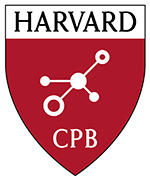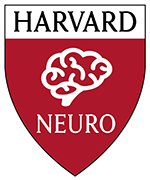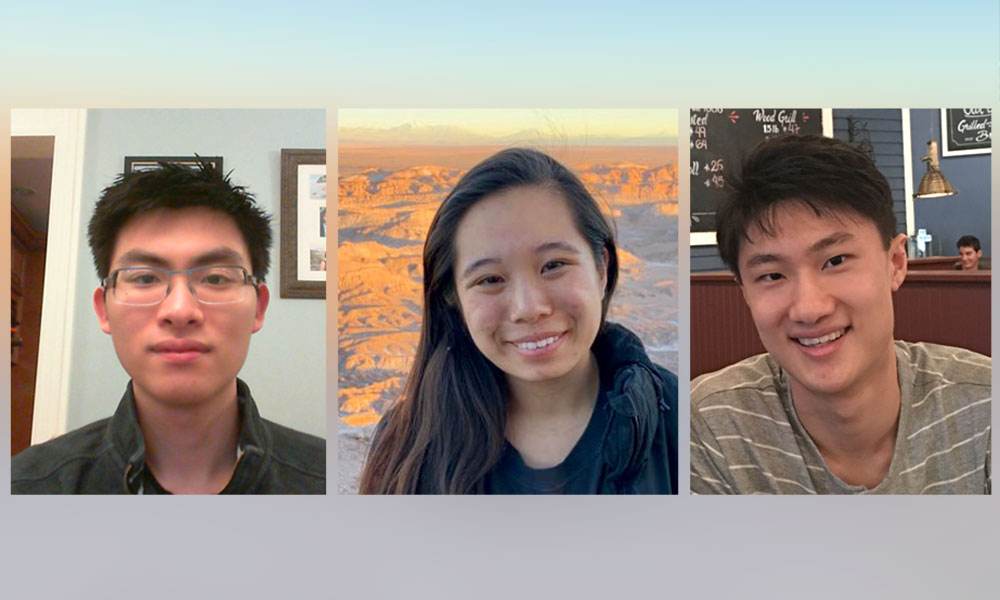Even though Harvard’s undergraduates are currently studying from home, the Harvard chapter of The Phi Beta Kappa Society (PBK) is continuing its spring tradition of inducting students who demonstrate exceptional academic merit.
Three students from concentrations administered by MCB—Edward Kim (CPB ‘21), William Ho (CPB ‘21), and Evelyn Wong (Neuro ‘21)—have been selected to join the storied honor society as part of PBK’s “Junior 24.”
Each of the three inductees found out about their induction through email. “I’m on the west coast, so I woke up to the email from the PBK committee and was, for lack of a better word, ‘SHOOK,’” Wong says. “It definitely doesn’t feel like a personal achievement, because there are so many individuals who have supported my academic career, and I think this is a huge testament to that.”
Ho was in a virtual class when PBK notified him by email. “I received a flood of really supportive emails and messages from tutors in my house and fellow students, which was really heartwarming,” he says.
“I am really honored by the recognition and feel deep gratitude for everyone who has supported me in my path,” Kim says. “Receiving this award during the epidemic is humbling as I am constantly reminded of its devastating effects in the news. However, I am inspired by the recognition to continue studying and finding ways to help society. So, celebrating will have to wait!”
As juniors, Kim, Ho, and Wong are all in the thick of distance learning but are adjusting. “For me, studying at home has been the same as studying on campus or at a library,” Kim says. “All it takes is reading material and time to think. So far, with online learning, my favorite position is lying in bed—thank goodness for virtual backgrounds!”
Ho is actually somewhat relieved that he doesn’t have to wake up at 6:30 AM each morning to catch a bus to a class at Harvard Medical School. “The time I’ve saved in transit has gone to other tasks, such as preparing meals for my family or cleaning the house, which we are privileged to have taken care of by HUDS and HCS on campus,” he says.
“Academically, I’ve been trying to maintain a similar level of quality to before and completing all my assignments, even if they’ve since been made optional,” Ho adds. “I think this is mostly because I view college as an opportunity to learn and broaden how I think, so I wouldn’t be able to quite respect myself for slacking off.” He notes that even though reading along with slide shows is often easier online, he misses being able to “chalk-talk” in math class.
Although in-person lab work has been interrupted, Wong has found some unexpected upsides to working online. “As a research fellow in the Ed Boyden Lab, the undergrads in my project and our two grad student mentors are both learning computational modeling of molecular dynamics together – and it’s so cool to have something where both parties are stumbling together, catching each other’s falls, and learning from each other,” she says. ”Even within my classes, this Emergency SAT/UNSAT has allowed me to take risks in the sense of writing papers that compel me to wrestle with perspectives that I never would have taken if I just wanted to provide the strongest viewpoint possible. Despite the Zoom and the lack of human connection (which I think is irreplaceable), this has been one of the most intellectually liberating experiences I have had in college.”
Wong has also teamed with several of her labmates and friends from Harvard and MIT to launch an initiative called CovEd, which connects disadvantaged K-12 students with college student mentors. The project grew out of a Harvard class called GENED1076. “[I] got together a group of friends who would be interested in reaching out to low-income/disadvantaged students who would be hit hardest by these school closures,” Wong says. “We’ve grown to a community of over 3,500 super dedicated undergrads/postgrads/educators, and have been doing a bunch of outreach to high poverty communities nationwide to tackle these issues by connecting K-12 students to undergraduate and postgrad mentors who could serve as role models to them while also providing academic support.” For more details, see Wong’s write-up here.
Supporting students who are first-generation or low income is especially important during turbulent times, she adds. “We as FGLI students have so many things happening internally and back home that are just unspoken in the university context, whether it’s navigating higher education alone, financial instability, housing insecurity, sickness in the family,” Wong says. “If I had one thing I would say to my underclassman self, it’s that you will have these additional obstacles, and for some, you will have to learn how to navigate them yourself; but no matter how much ‘smarter’ you think the next person over is compared to you, you have something that no one else can claim: the experiences that you have undergone and the challenges you have overcome.”
Though recent events have dramatically reshaped these students’ semesters, they’ve largely continued to do coursework that supports their established interests.
Kim is most interested in cancer biology. “I think history has shown us how powerful scientific inquiry has been in shaping modern society,” he says. “My dream is to help develop a robust treatment strategy for cancer, which I believe will require perspectives from fields across the spectrum.”
Ho identifies himself as a chemical biologist, saying that the discipline allows him to integrate his interests into one course of study.. “I have a lot of academic interests that really center around understanding the more quantitative and small-scale aspects of biology by using a rigorous basis in pure math, physics, and chemistry,” he says. “I really love organic chemistry, and I had the immense privilege of being one of the first undergraduates to teach Chem 30 last semester. One of my catchphrases was ‘Think about geometry’… and I really think this phrase encapsulates a lot of my academic thinking.”
Wong is a joint concentrator in Neuroscience and Romance Languages & Literature. “I think that to fully serve the communities I’d like to help in the future, there’s a sense of empathy that can really only be taught by seeing the world through the eyes of others–that’s what literature has taught me to do,” she says, adding that she especially loves projects where she finds connections between sciences, art, and humanities. She cites her final project for Spanish 126: Performing Latinadad allowed her to explore how healthcare systems could be “decolonized.”
All three PBK inductees say that they are grateful for the MCB community and their fellow students.
“While I am deeply humbled to be named one of the Junior 24, I know that there are so many of my peers who are just as passionate, hard-working and deserving of this award,” Wong says. “This is a huge tribute to my professors and advisers.professors and advisers, especially Ryan Draft and my LS50 community, for their unrelenting support for my personal growth, and to all my peers who challenge and inspire me to work toward self-growth (and, quite often, for putting up with my shenanigans!) while never forgetting where I come.”
“I’m very thankful for my undergraduate peers, especially in CPB and MCB,” Ho says. “I’ve found immensely talented friends in Carter Nakamoto, Stephanie Tang, Edward Lee, Serin Baek, Edward Kim, Andrew Cho, Michael Shadpour, Ralph Estanboulieh, Christie Hung, and Chris Sun, among others. They have kept pushing me to be better and truly defined such a large part of my college experience.”
“I want to thank Irina Cashen, Dominic Mao, Rachelle Gaudet, my professors, and my CPB friends for their continued support and memorable times!” Kim says, adding, “First years and sophomores, don’t miss out on CPB/MCB!”
by Diana Crow




